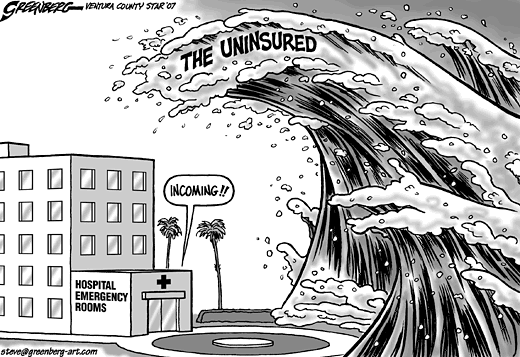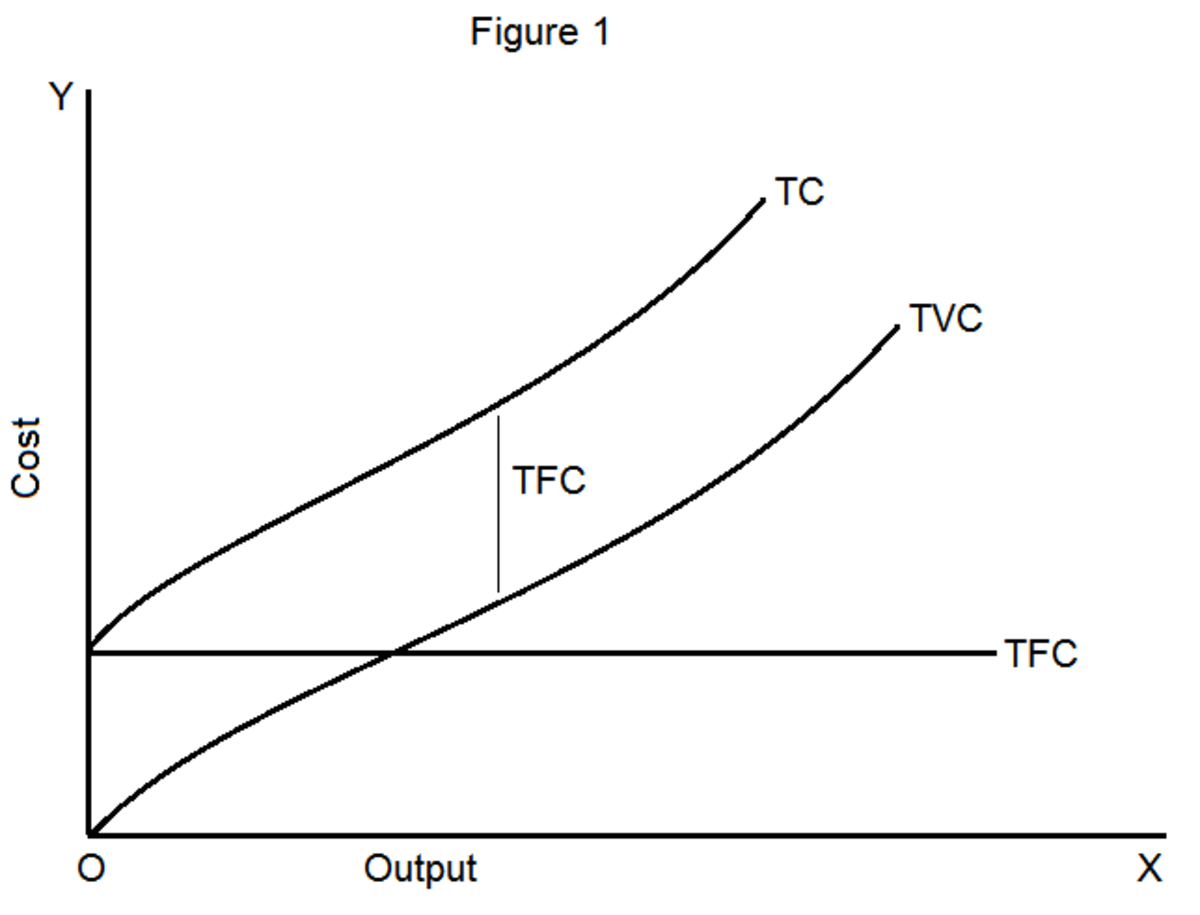American Healthcare Disadvantages- The Cost of the Uninsured

The Irony of Insuring the Healthy and Denying the Sick
As healthcare attempts to cut costs one thing is clear—health insurance is more available for the healthy than the sick. When we need it the most, we are more likely not to have it. As I watch news station cover the health crisis and listen to politicians debate healthcare reform it is easy to lose sight of what is important. So what is important? What is important is making sure we do not need to worry, that we are healthy, and when we are sick, we get the care we need. Our system needs to change to make these basic things happen. All too often, we make decisions, support legislation, and back political candidates on the premise that “it can’t happen to us” and we want to save money. We think short term. We do not hope for the best and plan for the worst like we should be if we were responsible. Fact of the matter is, “it” does happen to someone, to about 15% actually.
As we walk around believing that we are paying for the insurance of others, we should feel lucky. We should feel lucky that we beat the odds and luckily do not need to use more healthcare dollars than we paid in. Others have not been as fortunate. Many people each year are diagnosed with a serious health condition that leaves them unemployed and disabled. They no longer have the job that once gave them their health insurance. Now when they need healthcare the most, they have fewer resources.
In America, we become angry when we feel we are giving more than others. We forget that we may have given less in the past and we do not know how much we will be able to give in the future. It is all left to chance and we are not invincible nor are we in full control of our lives. When we give more than we receive one year, we should be thankful we did not need to tap into our insurance. We should be relieved others are getting the care they need earlier rather than later so that the proactive care they receive is less costly than any reactive care they could receive if they let the condition go. The more the entire nation accesses the care they need, the less likely contagious diseases will be left untreated. It benefits us all to have everyone we come into contact with get the treatment they need.
In the long run, what is best for all of us also turns out to be what is best for us as an individual.

Study Shows an Employer-Funded Healthcare System Creates Great Costs for Taxpayers
When individuals and families are unable to access private health insurance, their health care translates to public costs in the form of taxpayer bills to fund public insurance or uncompensated care programs for care that would otherwise be paid for through insurance. A study by the Commonwealth Fund used data from the Medical Expenditure Panel Surveys to estimate public program spending and uncompensated care costs for uninsured workers and their families. In 2004, uninsured and publicly insured workers and their dependents accounted for $45 billion in public costs. This includes $33 billion associated with public program insurance costs and $12 billion in uncompensated care costs. This cost continues to grow. This study showed that the cost increased by 45% between 1999 and 2004.
Source: S. Glied and B. Mahato, Who Pays for Health Care When Workers Are Uninsured?, The Commonwealth Fund, May 2008
Insured Pay For Uninsured Through Higher Premiums
Families USA, and advocacy group for healthcare consumers, found that about 37% of health care costs for people without insurance — or a total of $42.7 billion — went unpaid in 2008. That cost eventually was shifted to the insured in the form of higher premiums. The study found that the average U.S. family and their employers paid an extra $1,017 in health care premiums in 2008 to compensate for the uninsured.
Since this research was conducted by a group advocating for expanded healthcare coverage, the presentation of the data may be skewed. Other studies show that some of the costs of the uninsured are not reimbursed. This is not a way the country should save money, however. Blocking access to healthcare and leaving hospitals and medical professionals to foot the emergency bills is not a way to stabilize healthcare or the economy. While many may have benefited from short-term savings, crisis always costs more.
Unmet Health Needs of Uninsured Adults Increase Health Crises
In this study, long-term–uninsured adults reported much greater unmet health needs than insured adults. The study determined that providing insurance to improve access to care for long-term–uninsured adults could have substantial clinical benefits. While this study did not analyze the cost of care, it is not only inhumane to make healthcare inaccessible to Americans until they reach a serious health emergency, it is costing the nation a great deal of money. This is a lose-lose situation. The uninsured individual suffers and the US is paying for expensive surgeries and life-saving treatments instead of more cost-effective preventive medicine that could circumvent a number of these serious health conditions or at least detect the need for treatment earlier reducing the overall intensity of medicine and evasive procedures required.
Source: The Journal of American Medicine Association, Unmet Health Needs of Uninsured Adults in the United States, JAMA. 2000;284(16):2061-2069. doi: 10.1001/jama.284.16.2061








